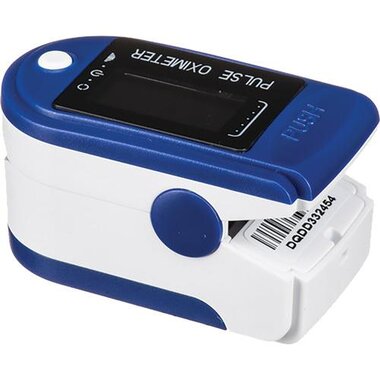A pulse oximeter is a small lightweight device used to monitor the amount of oxygen carried in the body.
Pulse oximetry equipment also measures.
Discover pulse oximeters the most common devices used in oximetry as well as the readings they perform in evaluating health.
Pulse oximetry or pulse ox is a quick and needle free test that measures the amount of oxygen in your blood.
Learn about oximetry a procedure that measures the amount of oxygen in the blood.
An auditory beep can also be set to accompany each detected pulse beat.
It can rapidly detect even small changes in how.
This test is frequently performed to measure the function of the heart and lungs.
The perfusion index pi gives you the strength of your pulse.
Pulse oximetry is a noninvasive method for monitoring a person s oxygen saturation though its reading of peripheral oxygen saturation spo 2 is not always identical to the more desirable reading of arterial oxygen saturation sao 2 from arterial blood gas analysis the two are correlated well enough that the safe convenient noninvasive inexpensive pulse oximetry method is valuable for.
An auditory alarm can be set to warn you when your spo2 and pulse rate is beyond the limits you have set.
Andrews md mansour y.
Pulse oximetry equipment also measures.
Oximetry is the measurement of oxygen saturation in blood and is usually expressed as a percentage a normal reading is typically 97 percent or higher.
It is an easy painless measure of how well oxygen is being sent to parts of your body furthest from your heart such as the arms and legs.
Pulse oximetry is a test used to measure the oxygen level oxygen saturation of the blood.
Perform a primary assessment as you normally would and check pulse oximetry if available.
You are responding to a male co worker in the warehouse with an unknown medical problem.
Which of the following statements is true.
Dib md thomas.
A clip like device called a probe is placed on a body part such as.
This noninvasive tool attaches painlessly to your fingertip sending two wavelengths of light through the finger to measure your pulse rate and how much oxygen is in your system.
Transcutaneous oximetry tcpo 2 is the only method to measure the local oxygen released from the capillaries through the skin reflecting the metabolic state of the lower limb 1 noninvasive arterial studies including transcutaneous oxygen pressure measurements with the limbs elevated or dependent to predict healing after partial foot amputation.
Pulse oximetry is a noninvasive and painless test that measures your oxygen saturation level or the oxygen levels in your blood.
It shows whether your heart and lungs supply enough to meet your body s needs.

